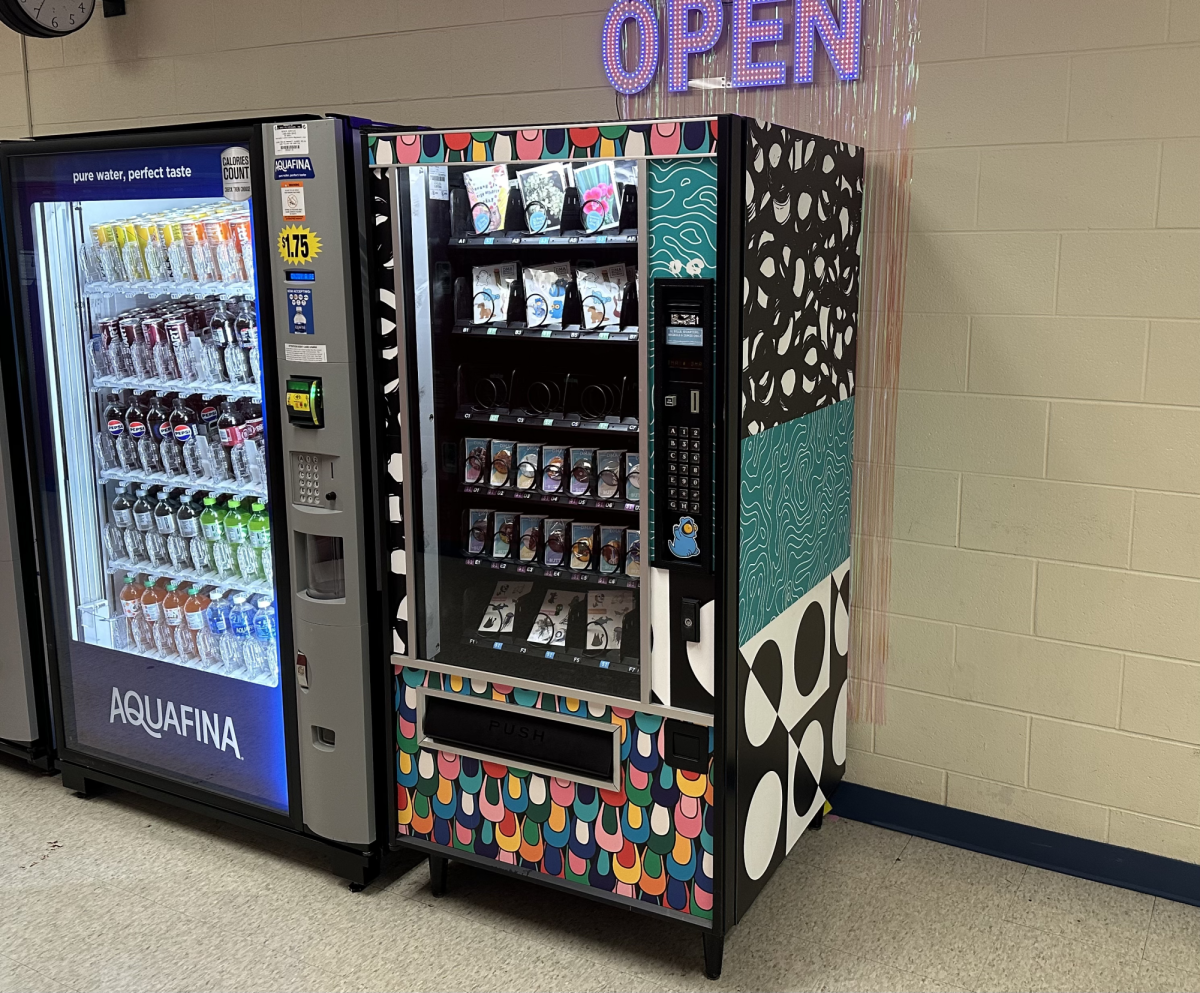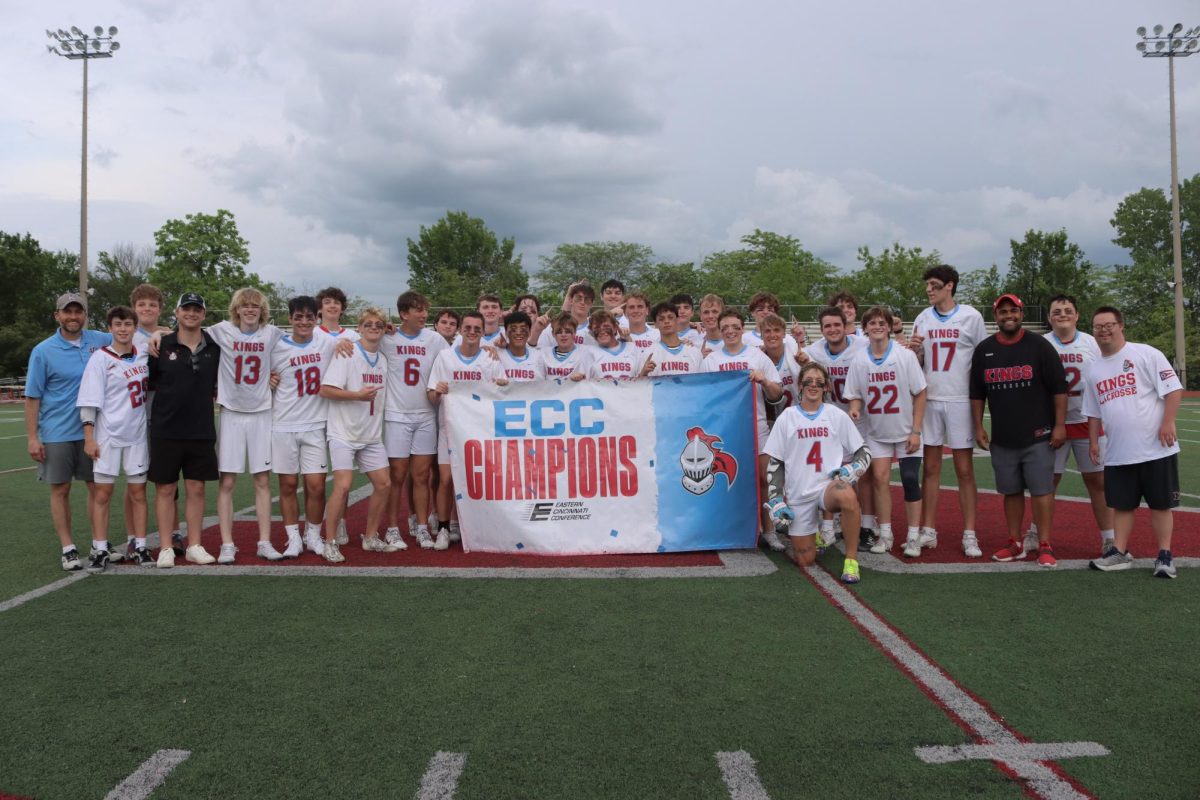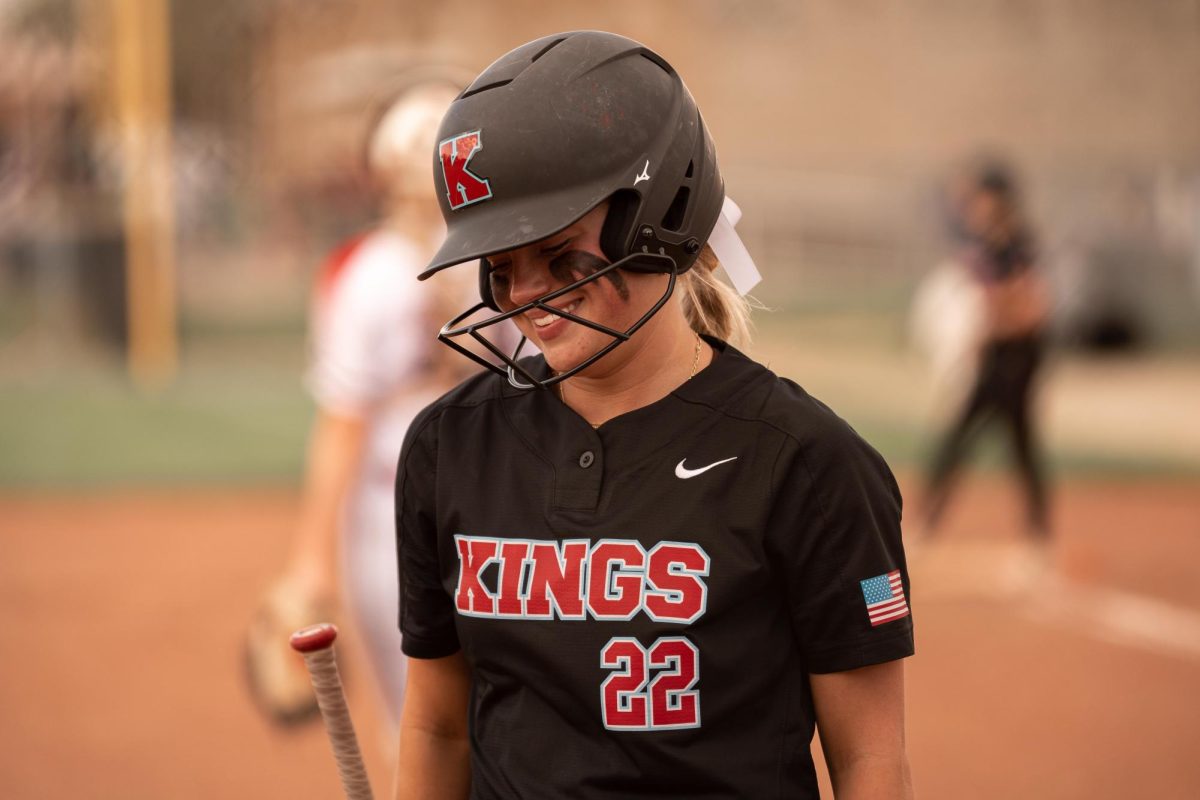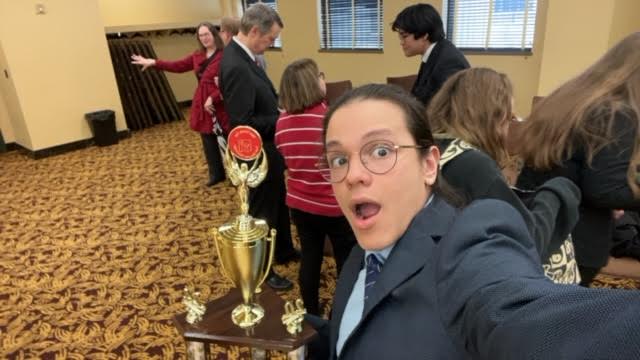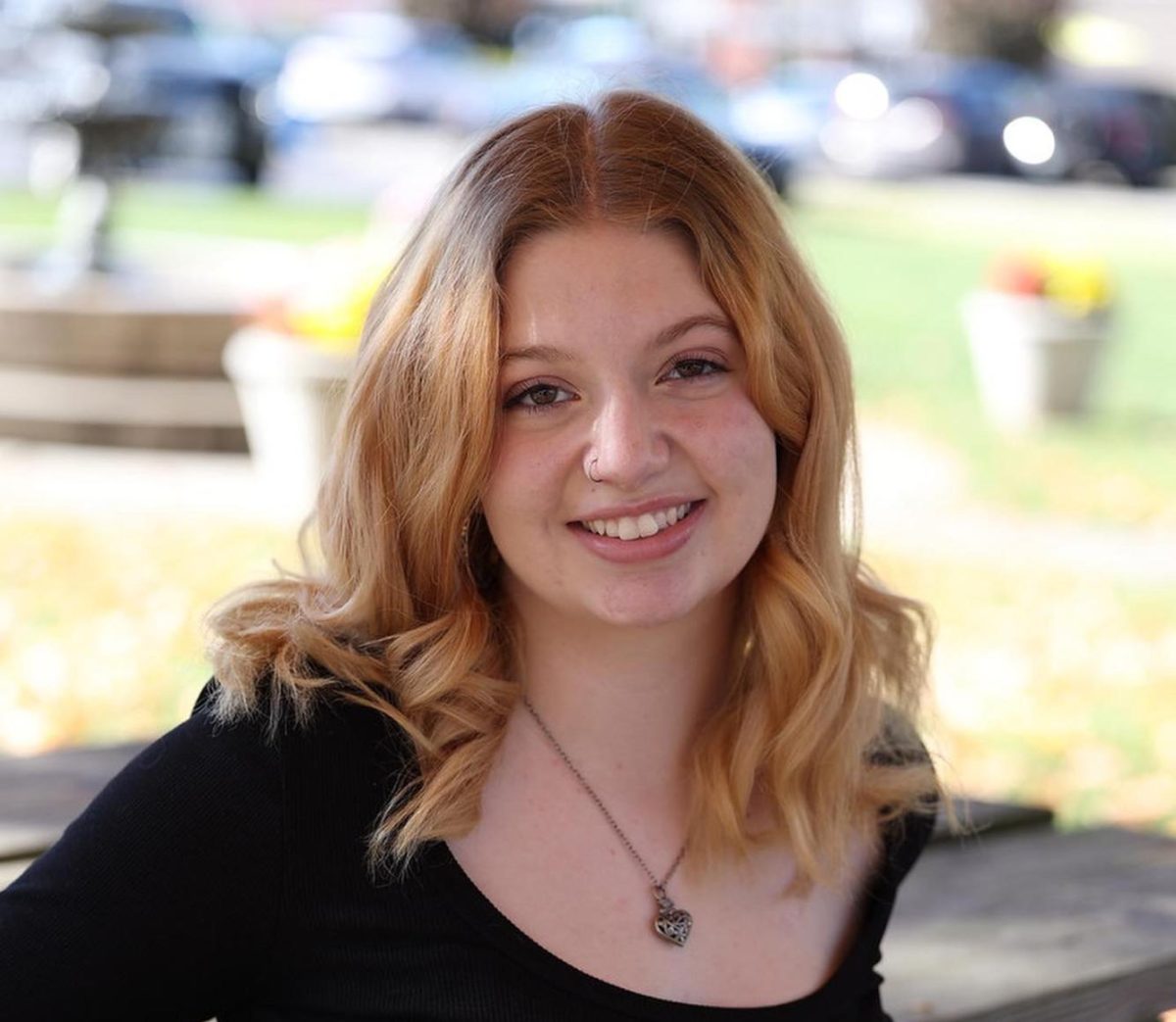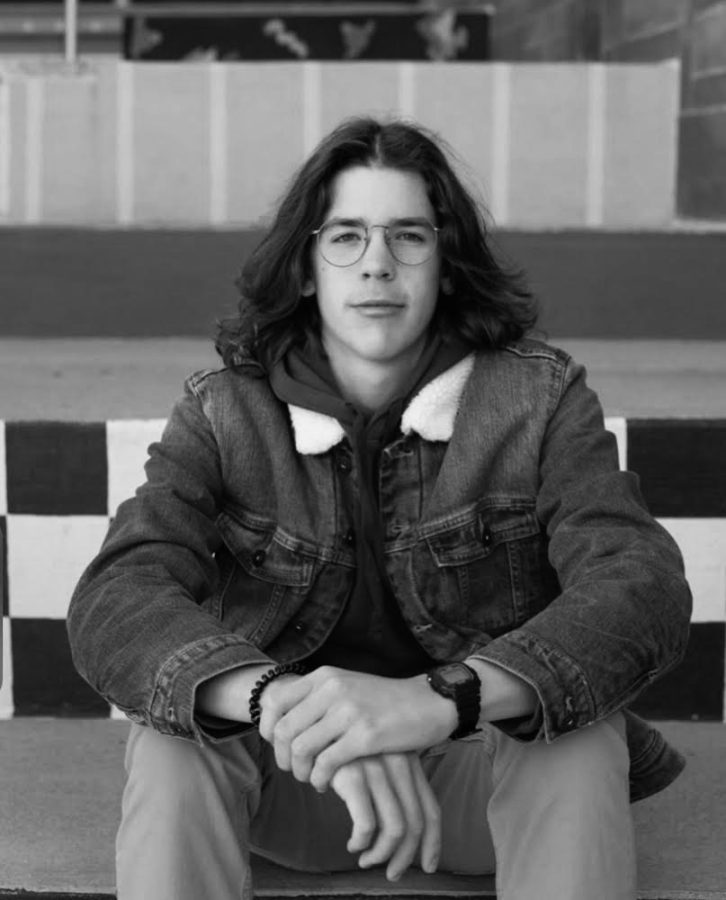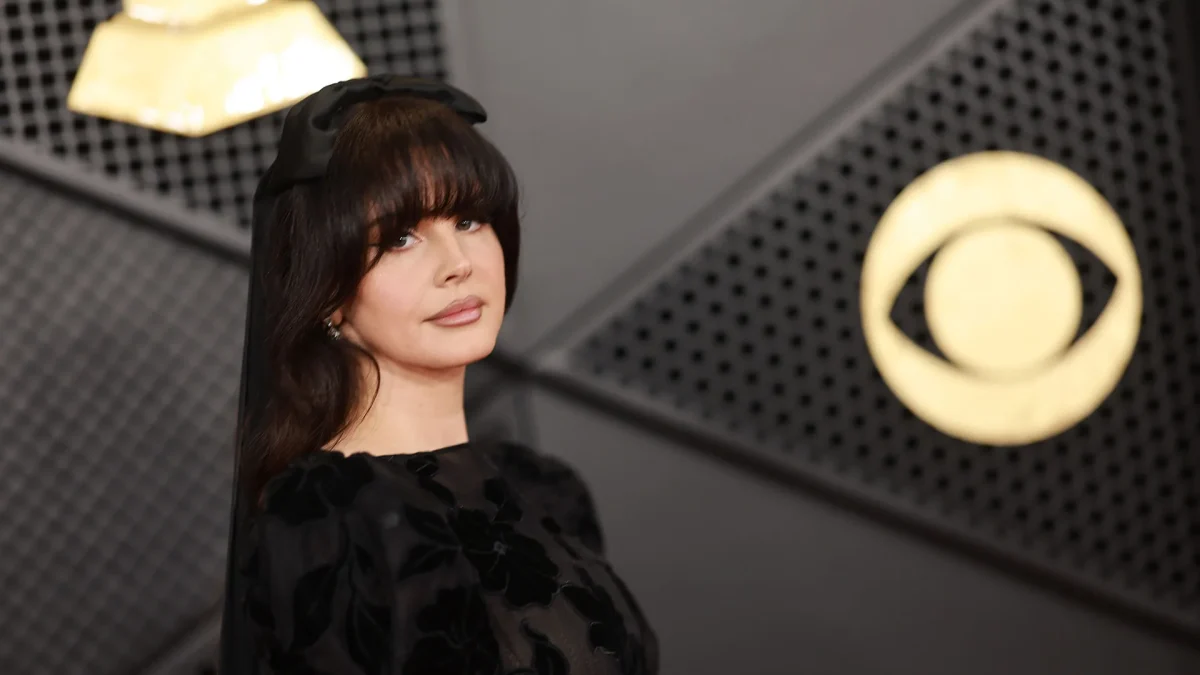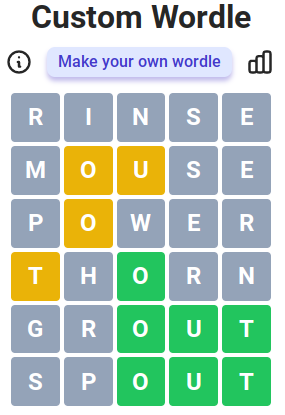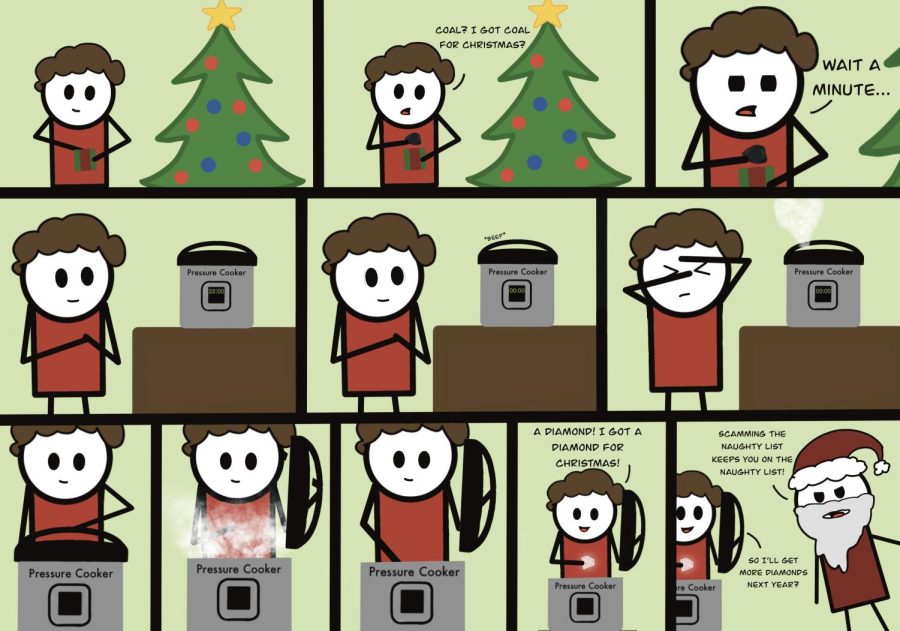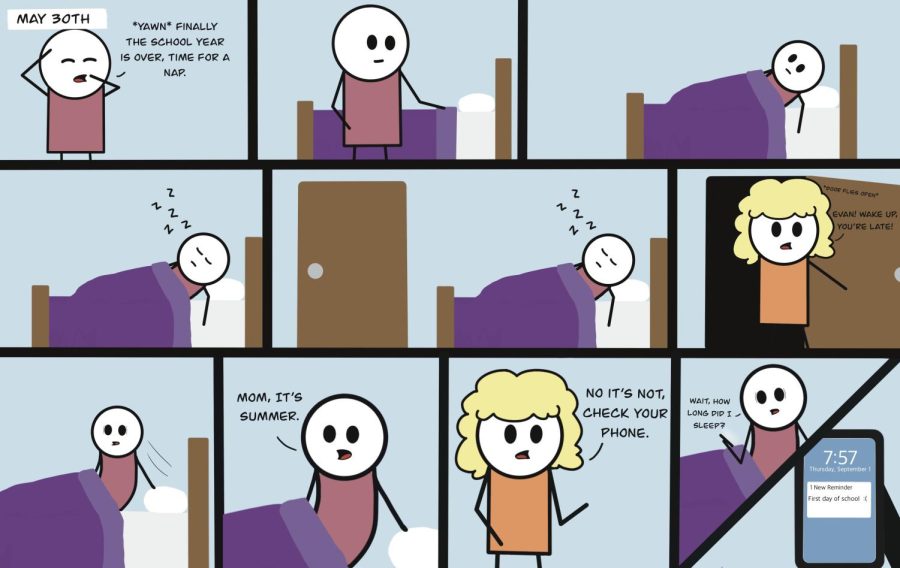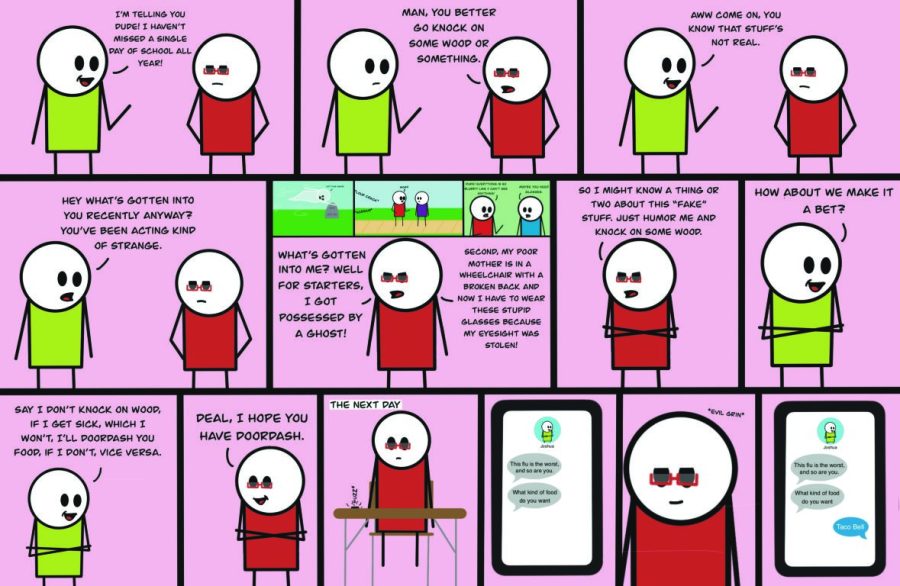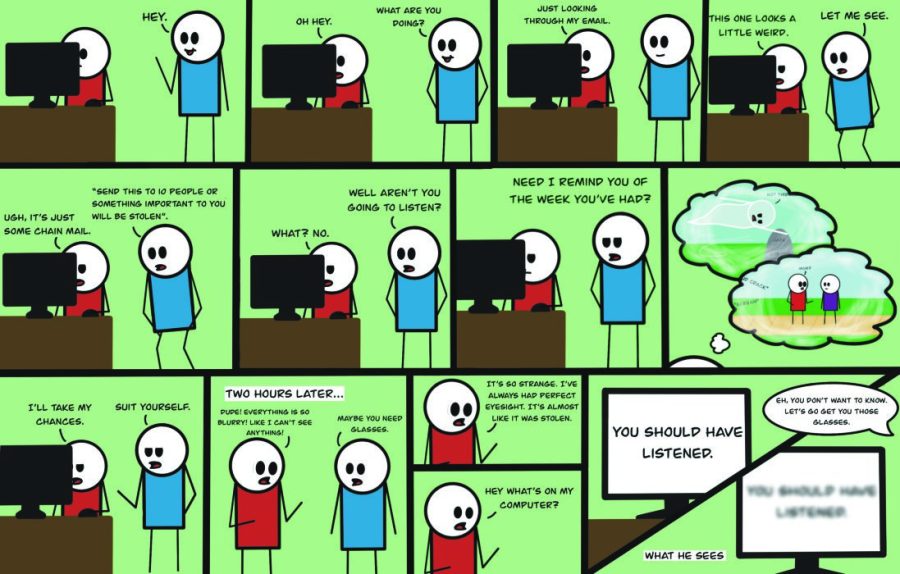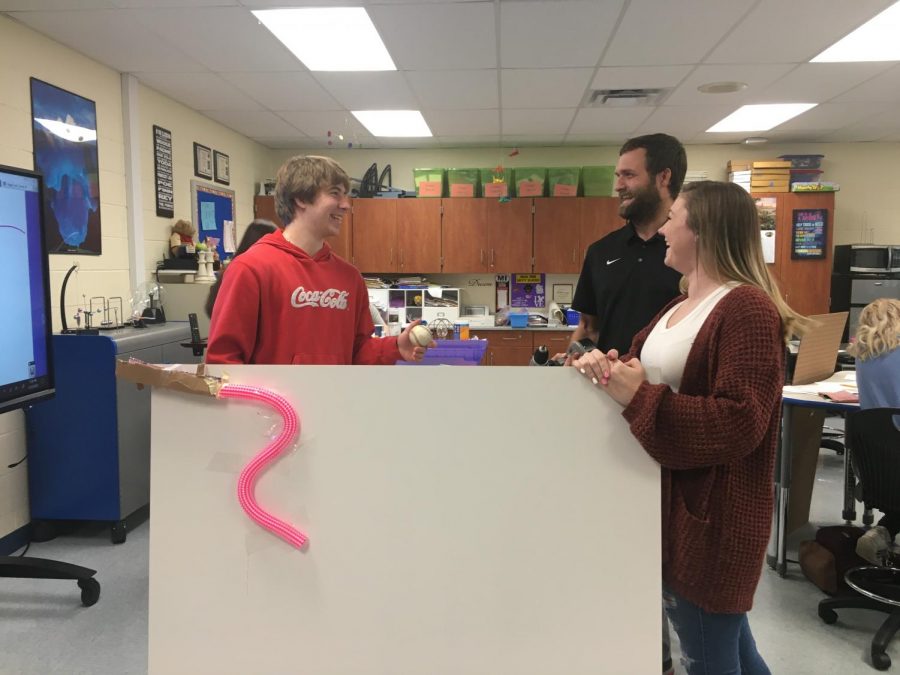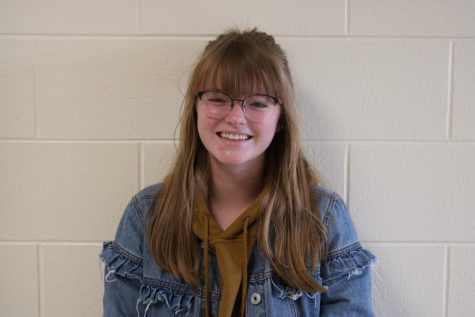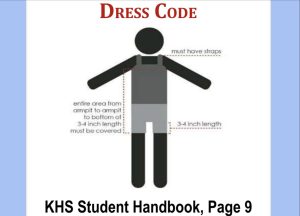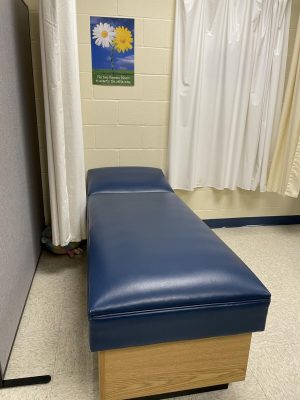Melanie Contratto and Casey Abrams pilot a new high school teaching style
January 25, 2020
Apollo 11 was the spacecraft that carried mankind to the moon for the first time in 1969. It was the first of its time, a trailblazer, a brave guinea pig for many more missions to come. Apollo is also the name that Melanie Contratto, a physics teacher at Kings High School has given to the new class that she co-teaches with Casey Abrams, who has taught algebra, pre-calc, and geometry.
The two teachers developed the class when they saw a need for project based learning in their classrooms. This form of learning is when students use a problem or a project to learn a topic, instead of notes and tests. High school students in math classes love to ask the question “when am I ever going to use this in the real world?” Abrams saw this question being asked and created an answer for his students. He believes that when you develop the need for the math through a project, students are more likely to stay engaged and remember the skills they’re learning.
“If a student needs to know something, they’re more likely to remember it than if I say it’s important,” said Abrams.
Project based learning is when students work on a project for extended periods of time, with the goal of solving a problem or answering a question. This learning technique can be used to improve communication skills and creativity, as it taps into parts of the brain not otherwise used in a traditional classroom setting. PBLWorks, an organization that designs and facilitates project based learning, believes in implementing the technique into schools to prepare young people for the challenges they will face in the real world.
“Through PBL, students engage in learning that is deep, long-lasting, and relevant to the challenges of their lives and the world they will inherit,” according to PBLWorks.
Abrams and Contratto have both expressed how they themselves are learning from this new class, and still figuring out the best way to use the techniques surrounding it. They are taking notes and making adjustments based on how the classwork is working with their students, but they are not afraid of the challenge. This is how the class coined it’s nickname, the Apollo Program.
“It’s a continuous learning process,” said Abrams, “there’s a need for change, and we are willing to do it.”
One of the biggest adaptations the teachers had to make was the order they teach the units. Abrams has re-organized his lesson plan based around the order that Mrs. Contratto teaches her physics concepts. Because of this element, the teachers sometimes have their lessons planned only weeks in advance.
“He takes my physics and moves his math around it,” said Contratto.
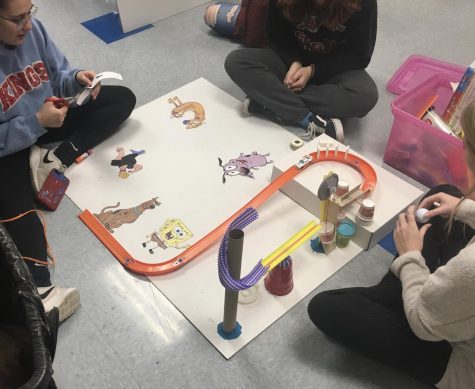
The two teachers are not the only ones dealing with the challenge of piloting a brand new class. Students must also navigate around the uncertainty that their teachers face. For instance, students must work without always knowing upcoming projects or units. This can be difficult when deadlines or grades are not communicated clearly throughout the classroom. Nevertheless, students are still on board with the theory behind project based learning, as the projects are typically viewed as more fun and engaging than a regular classroom setting.
“I love the project based learning,” said senior Will Strassel, “it’s very interactive.”
The challenges that have come with the class have been worth the benefits in the teachers’ eyes. Some of these benefits come in the form of having two teachers in the classroom.
“I feel like there’s more one on one time because there’s two of us,” said Contratto.
Mrs. Contratto is also a fan of having all of her students on a similar math level, an additional benefit of the course. However, perhaps the biggest advantage that the Apollo course provides is the skills that the students are developing.
“Failure is going to push you and challenge you and teach you more than if you did it right,” said Abrams, “it’s not just a math and science thing, it’s a learning thing.”
Contratto and Abrams are excited about the results of their class, and hope that the teaching technique catches on and influences other teachers. Abrams is already implementing project based learning in his other math classes.
“Hoping that this is the start of a trend for not just our class, but for other teachers to start re-thinking,” said Abrams.





